Unusually early harvest putting Ohio produce growers in a pickle
An unusually warm February and March has Ohio produce crops maturing ahead of schedule, which impacts u-pick operations.
Read MoreThis order allows for limited sale and distribution of dicamba OTT products that were already in the possession of growers or in the channels of trade and outside the control of pesticide companies as of Feb. 6, 2024.
In light of the Feb. 6, 2024 ruling by the U.S. District Court of Arizona vacating the 2020 registrations for over-the-top dicamba products, the U.S. Environmental Protection Agency issued an Existing Stocks Order for Dicamba Products Previously Registered for Over-the-Top Use on Dicamba-Tolerant Cotton and Soybeans, including XtendiMax, Engenia and Tavium. This order allows for limited sale and distribution of dicamba OTT products that were already in the possession of growers or in the channels of trade and outside the control of pesticide companies as of Feb. 6, 2024.
“We are grateful to EPA for hearing farmers’ and ranchers’ concerns and addressing them quickly to ensure we have access to the critical tools needed to protect our crops this season. Without EPA stepping in, farmers and ranchers across the country were facing uncertainty and financial risk,” said American Farm Bureau president Zippy Duvall. “Farmers are committed to the safe use of all crop protection tools, and many had already made planting decisions with dicamba-tolerant crop systems in place for the season. We rely on science-based guidance from EPA, and we appreciate the agency standing by farmers and science in this decision.”
The issuance of this existing stocks order will help ensure that growers who already possess OTT dicamba and/or have already purchased dicamba-tolerant seeds and thus are reliant on the availability of specific products solely for the 2024 growing season: (1) apply only dicamba formulations designed for use over the top of dicamba-tolerant soybean and cotton, rather than violating FIFRA by misusing more volatile dicamba formulations which could lead to greater offsite movement (and thus potential damage to non-dicamba tolerant crops and other plants); and (2) apply these OTT dicamba products consistent with restrictions intended to reduce offsite movement and protect human health and the environment.
EPA’s existing stocks order is needed to ensure that growers follow these directions for use, which were designed to reduce environmental damage caused by off site movement.
Under this order, end users of existing stocks may only use the formerly-registered products consistent with the previously approved labeling for the products and must stop use of these products by the relevant dates laid out in the order. Additional details regarding restrictions on the sale, distribution, and use of these formerly-registered products can be found in EPA’s Existing Stocks Order for Dicamba Products Previously Registered for Over-the-Top Use on Dicamba-Tolerant Cotton and Soybeans.
EPA will continue to update the public and the states as it evaluates and takes any actions related to dicamba use.
Listen to Ohio Farm Bureau Policy Counsel Leah Curtis explain how dicamba use had been vacated.
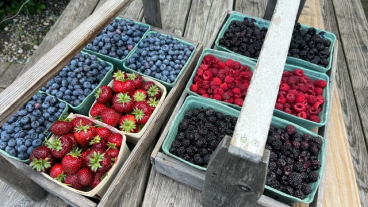

An unusually warm February and March has Ohio produce crops maturing ahead of schedule, which impacts u-pick operations.
Read More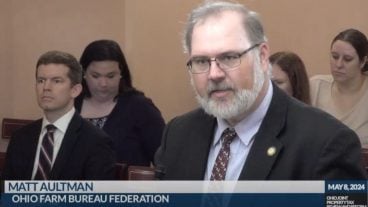
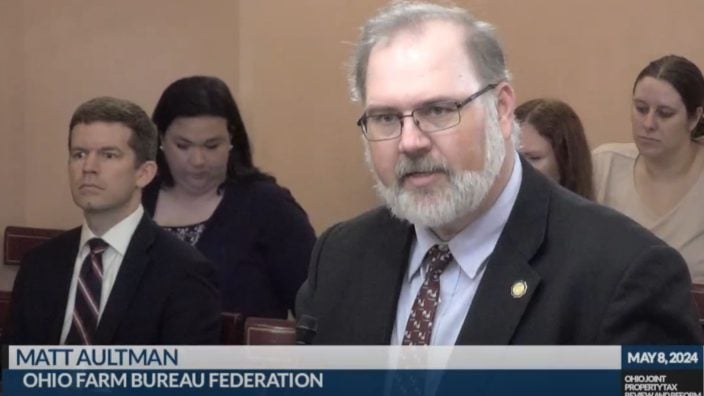
During his testimony, Aultman added that ensuring that agricultural property is valued for its agricultural potential and not development is critical to the continued success of Ohio agriculture.
Read More

The emergency fuel waiver to allow the sale of summer gasoline blends containing 15% ethanol will lengthen the period during which Americans can continue buying E15 from June 1 to Sept. 15.
Read More

Ohio Farm Bureau 2024 priority issues focus on business climate, regulatory environment, preserving Ohio’s farming heritage, healthy rural communities, and grassroots advocacy.
Read More

The law requires most businesses to report information about their beneficial owners, and the intent is to try to make it harder to illegally hide assets and commit financial crimes.
Read More

This allows for limited sale and distribution of dicamba OTT products that were already in the possession of growers or in the channels of trade and outside the control of pesticide companies as of Feb. 6, 2024.
Read More

Data shows there are fewer farms in the United States, yet more new, beginning and young farmers.
Read More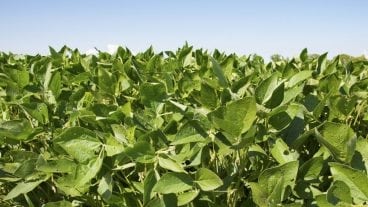

How will this impact Ohio farmers and what can be done to allow for use of the products that have already been purchased?
Read More

American Farm Bureau President Zippy Duvall stressed that it is imperative EPA expeditiously provide clarity to farmers and asked the agency to issue an existing stock order.
Read More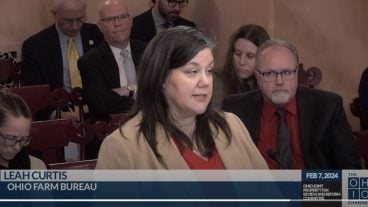
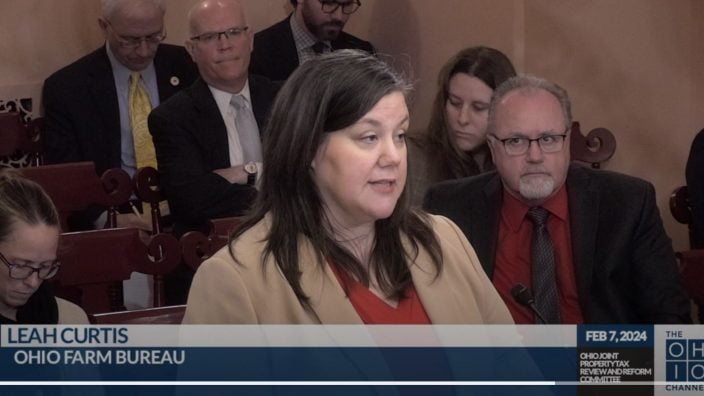
farmers are happy with the purpose and philosophy of the CAUV program, but all would prefer some more predictability in their values and more importantly, their tax bill.
Read More